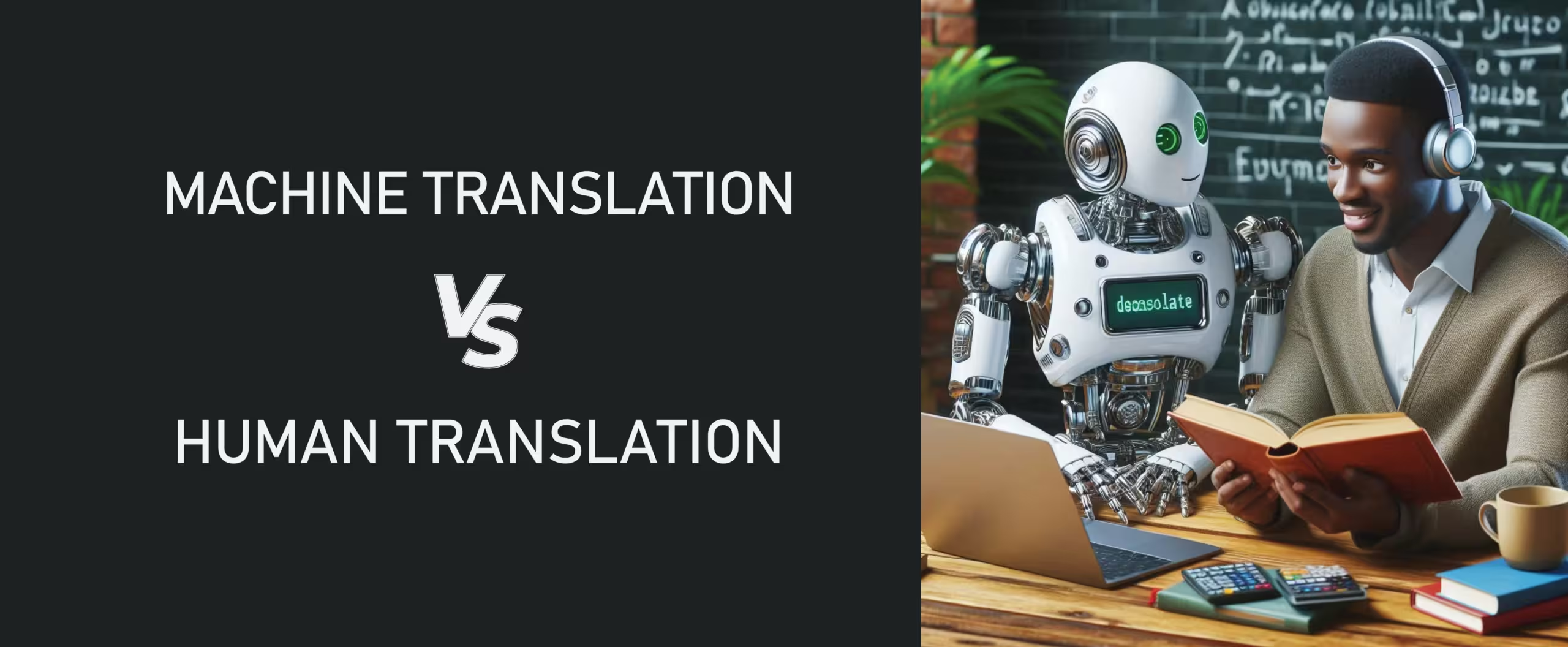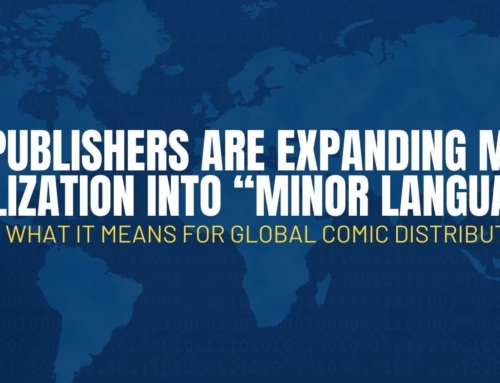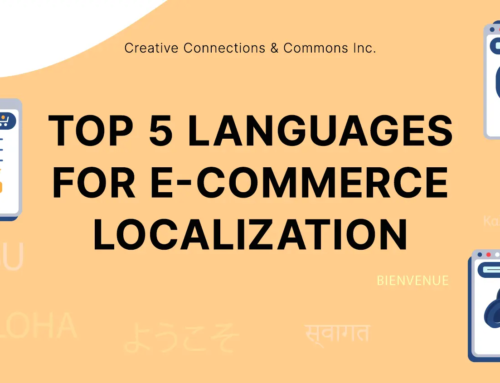Key takeaways
- Choosing between machine translation vs human translation depends on your specific needs.
- Human translation services ensure cultural and technical accuracy, which specialized content demands.
- Reliable providers of professional translation services optimize their methods through the combined efforts of machine and human translation.
Table of contents
- Machine Translation vs. Human Translation
- How Machine Translation Is Shaping the Translation Industry
- Choosing Between Machine and Human Translation: What’s Right for You?
Successful global brands need efficient methods in obtaining accurate translations. Technology’s evolution improved these methods to content maintains original intentions. However, the debate between machine translation vs human translation persists. Thus, brands continue to seek the best translation methods that meet their goals. In this blog, we will dissect machine and human translation, providing insights into using each service.
Machine Translation vs. Human Translation
Businesses have long depended on professional translation services to help globalize the economy. They would use this method to formalize their transactions with companies and individuals with different languages.
Initially, human translation services were the primary method. Real people would meticulously translate documents between languages. Technological advancements made machine translation an option. With this revolutionary development, brands enjoyed speed and convenience in translation. Despite this progress, the human touch still leads to excellence.
Why Go for Machine Translation?
Machine translation or MT utilizes algorithms and software. Global companies utilize this method for its multiple advantages which have significantly improved over the years.
- Translate content quickly: Machine translation offers speed, making it ideal for translating huge loads of content. This technology processes large bulks of text nearly instantly. So, machine translation saves time. For instance, MT is useful for urgent projects like global events that require rapid turnout. Also, machines can immediately translate conversations in real-time chat applications.
- Maintain cost-effectiveness: Global companies with large-scale translation projects can benefit from MT’s significantly reduced operational costs. After all, with machine translation, organizations can translate massive volumes of text without hiring multiple human translators. Thus, it’s a budget-friendly option for institutions going global.
- Remain consistent across translations: Machine translation helps ensure consistent terminology usage between translated content. Consistency is vital in translating content within technical fields, including engineering, legal, and medical. Accordingly, the translated texts remain consistent between the source and target languages. This way, you can avoid errors and misunderstandings.
Although machine translation offers multiple benefits, it comes with limits. Here are a few that users must consider:
- Accuracy: Machine translation often cannot capture the subtle differences in cultural nuances, idioms, and slang. As a result, translated content lacks the original text’s intended emotional impact despite being technically correct.
- Context: Machine translation systems might lack the full context of their translated text. Put simply, these machines utilize algorithms that instantly match words with their appropriate equivalent. However, some words might have multiple meanings or sound the same but have different meanings. These would confuse the algorithms. Consequently, they produce incorrect output.
- Quality: Machine-translated content can have polarized quality. Straightforward text might have good-quality translations. However, content with nuanced complexities will need Machine Translation Post-Editing or MTPE services. In this process, human translators will review and revise the machine-generated output. This way, they meet quality standards.
Why Choose Human Translation?
Despite the technological advancements of machine translation, human translation stays relevant. These services involve professional translators with deep understanding and knowledge of the source and target languages. They would apply these skills to their work, ensuring the final product has a human touch that machines cannot replicate. Here’s a closer look at the benefits of human translation:
- Ensure linguistic accuracy: Human translators, especially when licensed, are skilled at understanding context. Thus, they ensure that cultural nuances and idiomatic expressions are correct and meaningful in both the source and target language. Accuracy is especially important in legal, literary, and marketing fields because of the distinct tones and messages that need preservation.
- Guarantee high quality: When working with professional human translators, you can be assured that the final content will be excellent. Any team of professional translators, like ours at CCC, train to be the best at the craft. This way, they are confident in delivering top-notch translations that maintain the original text’s intentions, style, and tone. Moreover, only humans can spot language subtleties in creative works or official documents.
- Customize final work: There are many ways to make an effective translation, which will depend on the target audience. With human translators, you can tailor the translated work to meet the needs of specific audiences. For example, marketing campaigns can target different audiences with different languages and cultural references. Thus, translating the same thing for these diverse groups might not be as effective and efficient as customized translations.
- Ensure cultural sensitivity: Humans have the ability to understand cultural sensitivities. Accordingly, they can apply these sensibilities to avoid making tactless translations that will affect your business, especially when dealing internationally. Human translators would navigate these intricate social situations to produce appropriate and respectful translations.
- Handle specialized terminology: Complex subjects, such as technical, medical, and legal text, demand specialized talents that ensure nothing is lost in translation. Professional human translators research and apply this special knowledge in producing accurate and reliable translations.
Despite these benefits, human translation still poses some challenges:
- Time-consumption: Expectedly, human translation takes longer than machine translation. After all, each document requires careful reading, interpretation, and revision. While these steps are vital in ensuring the highest quality, some projects might come with time pressures.
- Costly: Hiring professional translators can be expensive. For large projects or documents requiring specialized expertise, you would need the right translators who can handle the task. Like any professional, the cost reflects the translator’s skill, experience, and time invested.
Pro-tip: Any reliable provider of general and specialized translation services will utilize the best of machine and human translation. After all, different projects require different scales of translation. Be sure to assess the needs of your translation project when choosing between machine translation vs human translation.
How Machine Translation Is Shaping the Translation Industry
Machine translation is one of the fastest-growing markets worldwide. Worldwide market size estimates from 2017 reported that 2024 would reach US$1.5 billion. Furthermore, the integration of MT with other technologies has separate market statistics.
For example, the 2024 market size estimate of global speech-based NLP technology or Natural Language Processing is US$21.27. When integrating this technology into MT, computers can translate audio or text automatically. This development is useful for real-time communication, which global businesses already utilize for their operations.
Note: Translation industry professionals like CCC stay updated with technological advancements. At the same time, we recognize the value of human expertise. As such, we combine both methods to provide comprehensive solutions.
What’s Right for You?
Choosing between machine translation vs human translation depends on some factors:
- Purpose and audience: What kind of text do you need to translate? Machine translation is suited for quick, informal content. However, official documents will need a human touch. Be sure to also determine the target audience.
- Budget and schedule: Evaluate your budget and time constraints when translating content. Machine translation is more cost-effective than human translation. Meanwhile, human translation offers higher quality at a higher cost than MT.
- Complexity and volume: Content for specialty audiences would require human experts. Meanwhile, large volumes of text would require MT. Still, human post-editing can ensure effectiveness.
Organizations can opt for a hybrid translation model that balances both machine and human approaches. For example, our Japanese translation services at CCC utilize AI translation with a human touch, ensuring consistent, accurate final products. Let’s discuss your next global project to determine how to integrate the best of machine and human translation.









